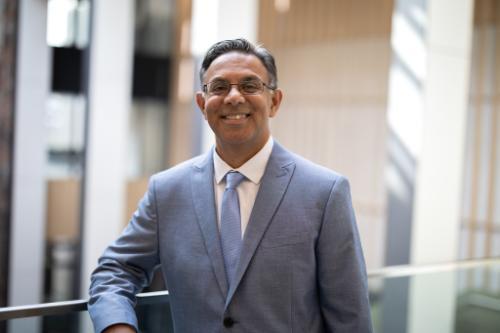Introduction
The long-term success of the University of Wolverhampton will be underpinned by its ability to support its core educational, knowledge exchange and research activities with effective and efficient operations.
This Strategy is one of four complementary strategies which are enablers of the University’s Strategy 2035. Importantly, this Strategy is inextricably linked to the People and Culture Strategy as operational excellence will depend heavily on the culture, approach and
performance of colleagues.
This Strategy reflects feedback from colleagues, the Students’ Union and the University’s recognised Trade Unions, as well as trends in the HE sector and the wider UK industry. It sets out five inter-related goals which support delivery of the University’s key pillars and will
enable the University to deliver against its priority to be one of the most agile, efficient and environmentally and financially sustainable universities.
The Strategy sets out the features of a high performing organisation in the operational excellence space with the clear expectation and belief that the University community has the confidence and capability to deliver these outcomes. The scope of this Strategy covers all
University operations other than front line teaching, research and knowledge exchange activities.

Professor Ebrahim Adia
Vice-Chancellor and Chief Executive
Our Goals
Goal 1: Efficient design of University operations
We want to ensure the University’s operations are aligned to and supportive of its educational, knowledge exchange and research activities with resources and effort allocated to areas based on strategic significance.
The key features of our approach will be to:
- Focus on documented end to end processes with clear ownership of those processes and tasks within them. The discipline of periodic process confirmation will become part of our routine.
- Identify and remove low value activity and duplication.
- Deploy appropriate resource to high value processes.
- Agree one best way of doing things – process compliance.
- Design outputs to meet requirements based on the value and risk of the activity.
Goal 2: Consistently meeting 'customer' requirements
We want to undertake operational activity to support the University’s educational and research objectives. To be excellent, it must be attuned to the relevant customer* groups for each activity.
The key enablers of this goal are as follows:
- Customer-centric thinking – who am I doing this for and what is their expectation?
- Right first time expectation of ourselves and colleagues.
- Improved governance and use of data to improve customer experience.
- Clear communication to customers, based on an understanding of their requirements.
- In this context 'customer' is whoever we are doing something for.
Goal 3: Attracting and retaining talented people
We want to be recognised as an employer who attracts, develops and retains the best talent. In addition to the activity set out in the People and Culture Strategy we will:
- Offer Learning and Development (L&D) that allows Professional Services teams to excel in current roles and prepares them for future opportunities.
- Embed Equality, Diversity and Inclusion (EDI) in processes, practices and our interactions with students and colleagues.
- Reward and celebrate success through individual and team recognition.
Goal 4: Commitment to continuous improvement
We recognise that achieving the standards to which we aspire will be challenging work and that there will always be opportunities for improvement. We will be consistent in our approach of evaluating options and delivering the right improvements.
We will:
- Embed consistent process improvement methodology and develop associated skills.
- Be responsive to changes in internal activity and the wider environment.
- Introduce and maintain technology to automate and enhance our processes.
Goal 5: Great at change
Change is inevitable within the HE sector in the timeframe of this Strategy. We will be an organisation which is well placed to deliver change by:
- Preparing colleagues for change at both a personal and organisational level.
- Operating a consistent evaluation methodology across all proposals (decision stage and formal post investment review process).
- Using standard project methodology and reporting (Prince 2 or Agile depending on activity).
- Actively managing delivery with clear ownership.
- Delivering clear communications to stakeholders.
Delivering the Strategy
Delivery of the Operational Excellence Strategy will be led by the Chief Financial Officer working closely with leaders and managers across the University, particularly within the Professional Services area.


/prod01/wlvacuk/media/departments/digital-content-and-communications/images-18-19/iStock-163641275.jpg)
/prod01/wlvacuk/media/departments/digital-content-and-communications/images-2024/250630-SciFest-1-group-photo-resized-800x450.png)
/prod01/wlvacuk/media/departments/digital-content-and-communications/images-18-19/210818-Iza-and-Mattia-Resized.jpg)
/prod01/wlvacuk/media/departments/digital-content-and-communications/images/Maria-Serria-(teaser-image).jpg)
/prod01/wlvacuk/media/departments/digital-content-and-communications/images-2024/241014-Cyber4ME-Project-Resized.jpg)
/prod01/wlvacuk/media/departments/digital-content-and-communications/images-18-19/210705-bric_LAND_ATTIC_v2_resized.jpg)
